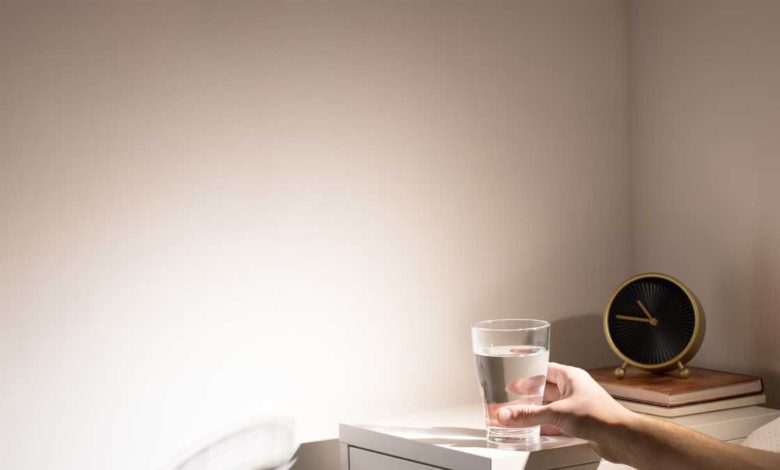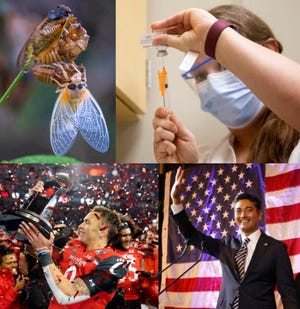
the things you do before bed as harmless as they may seem can have *** significant impact on the quality of your sleep. Like consuming alcohol. For example, *** sleep expert told the huffpost that even though *** boozy beverage may seem ideal to unwind, it actually prevents deep sleep and rem sleep when you eat *** large meal before bed, you risk having heartburn symptoms. Plus there's nothing like *** full bladder to disrupt your sleep very well. Health says that using your bedroom as *** multipurpose room can also contribute to *** bad night's sleep. When you have computers, tv gadgets and *** handful of stimulation around you, sleep is harder to achieve interacting with technology right before bed is *** no, no. Yes, that includes doom scrolling. Exercising before bedtime can also have *** negative impact on your sleep. You're better off doing something less impactful like Pilates or yoga. The best thing you can do before sleep is having *** wind down routine, read *** book, take *** warm bath or count cheap whatever rocks your boat.
What you need to know about avoiding dry mouth while you sleep
Pretty much everyone has the experience of waking up in the middle of the night with a dry mouth. But some people have that experience all the time. Not only is it uncomfortable, but a persistent dry mouth can also be a sign of other health issues. Left untreated, chronic dry mouth—at night or during the day—can lead to other health issues, such as tooth decay, gum disease, or oral thrush, according to the Mayo Clinic. What causes dry mouth at night?If you’re experiencing dry mouth at night, the first thing you should do is talk to you doctor about your oral hygiene habits, as there is likely something you can tweak there.There are numerous other reasons you might not have enough saliva and end up with that unpleasant, parched feeling. For many people, the problem comes down to not drinking enough water during the day, says Matt Messina, D.D.S., a Cleveland-based dentist.Other causes include smoking, aging, and prescription medications, Messina says. In fact, more than six hundred medications can cause dry mouth, including prescriptions used to treat high blood pressure, depression, and bladder control issues. In some cases, underlying medical conditions such as HIV/AIDs or diabetes can interfere with saliva production. Dry mouth can be particularly bad at night for people who breathe through their mouths while sleeping. Mouth breathing generally happens when you have sinus or nasal septum problems, respiratory infections, or sleep apnea. What are dry mouth symptoms?Obviously, you’ll experience that “cotton-mouth” feeling. But there are other symptoms outside of that. According to the NIH, these include: Stickiness in mouthTrouble chewing, swallowing, or talkingBurningCracked, dry lipsBad breathHow do you treat dry mouth? As with most health issues, proper treatment depends on the cause of your condition. For example, if a prescription changes saliva production, you’ll want to talk to your doctor about adjusting the dosage. If sleep apnea is the cause of dry mouth, you’ll want to work with a doctor to treat that condition. Messina recommends increasing water intake as your first step—particularly when drinking alcohol, which can also cause dry mouth. Other easy solutions include chewing sugar-free gum, as well as cutting out tobacco, alcohol, and caffeine. Sleeping with a humidifier increases moisture in your room, which may alleviate dry mouth. Finally, adding an alcohol-free oral rinse such as Biotene to your nighttime toothbrushing routine can help to soothe the mouth and remineralize your teeth, according to the American Academy of Oral Medicine. Other AAOM-approved rinse recommendations include Crest Pro-Health Rinse and Oasis Moisturizing Mouthwash.If nothing works, it’s time to speak to your dentist about using either an over-the-counter or prescription treatment—such as artificial saliva—says Jeff Burgess, D.D.S., a former clinical assistant professor at the University of Washington School of Dental Medicine. According to the AAOM, targeted drug therapy may also be an option, as there are currently two prescription drugs (pilocarpine and cevimeline) on the market that are approved to treat dry mouth associated with other conditions and treatments.
Pretty much everyone has the experience of waking up in the middle of the night with a dry mouth. But some people have that experience all the time.
Not only is it uncomfortable, but a persistent dry mouth can also be a sign of other health issues. Left untreated, chronic dry mouth—at night or during the day—can lead to other health issues, such as tooth decay, gum disease, or oral thrush, according to the Mayo Clinic.
What causes dry mouth at night?
If you’re experiencing dry mouth at night, the first thing you should do is talk to you doctor about your oral hygiene habits, as there is likely something you can tweak there.
There are numerous other reasons you might not have enough saliva and end up with that unpleasant, parched feeling. For many people, the problem comes down to not drinking enough water during the day, says Matt Messina, D.D.S., a Cleveland-based dentist.
Other causes include smoking, aging, and prescription medications, Messina says. In fact, more than six hundred medications can cause dry mouth, including prescriptions used to treat high blood pressure, depression, and bladder control issues.
In some cases, underlying medical conditions such as HIV/AIDs or diabetes can interfere with saliva production.
Dry mouth can be particularly bad at night for people who breathe through their mouths while sleeping. Mouth breathing generally happens when you have sinus or nasal septum problems, respiratory infections, or sleep apnea.
What are dry mouth symptoms?
Obviously, you’ll experience that “cotton-mouth” feeling. But there are other symptoms outside of that. According to the NIH, these include:
- Stickiness in mouth
- Trouble chewing, swallowing, or talking
- Burning
- Cracked, dry lips
- Bad breath
How do you treat dry mouth?
As with most health issues, proper treatment depends on the cause of your condition. For example, if a prescription changes saliva production, you’ll want to talk to your doctor about adjusting the dosage. If sleep apnea is the cause of dry mouth, you’ll want to work with a doctor to treat that condition.
Messina recommends increasing water intake as your first step—particularly when drinking alcohol, which can also cause dry mouth.
Other easy solutions include chewing sugar-free gum, as well as cutting out tobacco, alcohol, and caffeine. Sleeping with a humidifier increases moisture in your room, which may alleviate dry mouth.
Finally, adding an alcohol-free oral rinse such as Biotene to your nighttime toothbrushing routine can help to soothe the mouth and remineralize your teeth, according to the American Academy of Oral Medicine. Other AAOM-approved rinse recommendations include Crest Pro-Health Rinse and Oasis Moisturizing Mouthwash.
If nothing works, it’s time to speak to your dentist about using either an over-the-counter or prescription treatment—such as artificial saliva—says Jeff Burgess, D.D.S., a former clinical assistant professor at the University of Washington School of Dental Medicine. According to the AAOM, targeted drug therapy may also be an option, as there are currently two prescription drugs (pilocarpine and cevimeline) on the market that are approved to treat dry mouth associated with other conditions and treatments.
Source link










